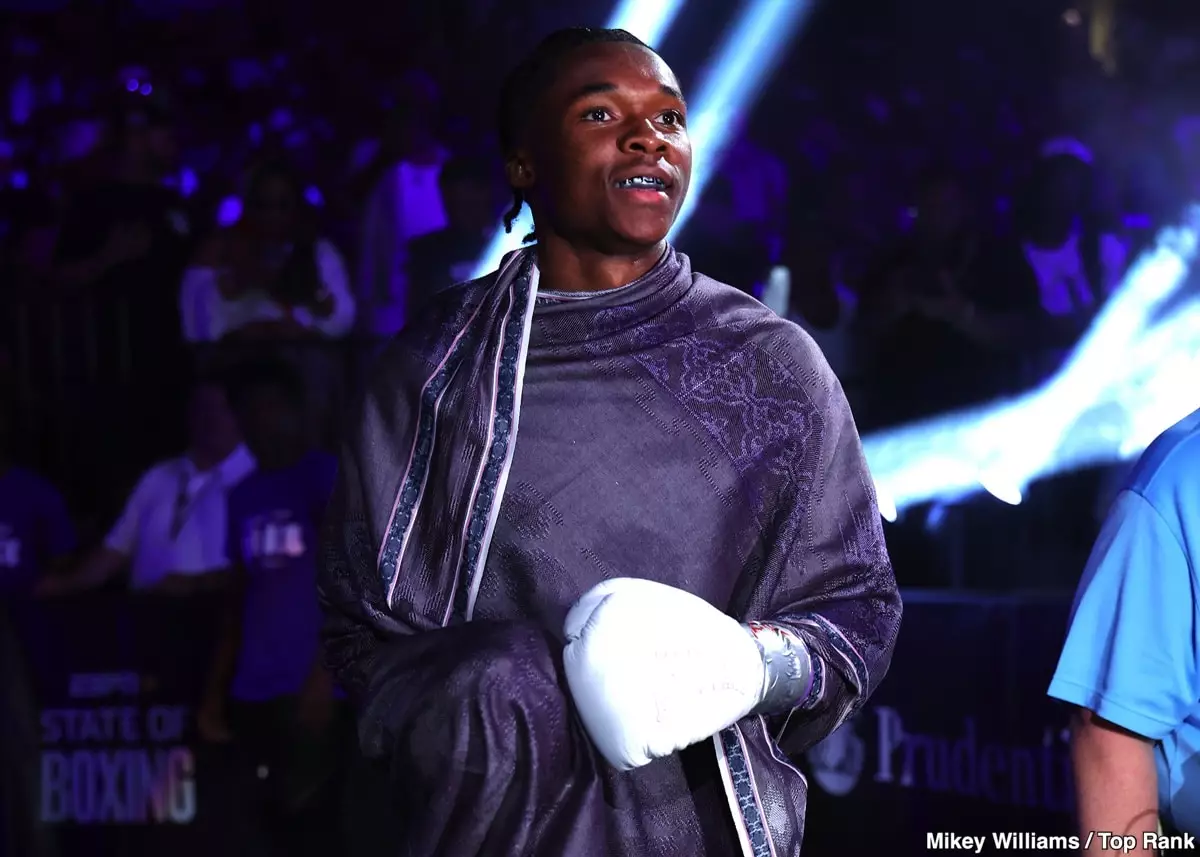The world of boxing is often defined by technical prowess, agility, and the ability to absorb punches. Yet, sometimes fighters grapple not with rivals in the ring but with vulnerabilities that can severely impact their careers. This was starkly highlighted in recent events involving lightweight prospect Abdullah Mason, whose performance against Yohan Vasquez has prompted serious discussions about his chin and overall resilience.
The controversy surrounding Mason intensified with comments from Floyd Schofield Sr. He claimed to have observed weaknesses in Mason’s defense during sparring sessions between his son, Floyd Schofield Jr., and Mason himself. According to Schofield Sr., Mason’s struggles to absorb punches were evident. He argues that Mason’s chin has been a point of concern from day one, suggesting that the recent knockdowns should come as no surprise to those familiar with the young fighter’s capabilities in the ring.
Mason’s recent bout against Vasquez saw him knocked down twice in the first round by a fighter who, while experienced, had not been touted as a top contender. This incident has encouraged further speculation about Mason’s ability to withstand harder hits when facing higher-caliber opponents. Schofield Sr.’s assertion that Mason cannot tolerate clean shots to the chin significantly undermines the buildup that Top Rank has been attempting with him as a potential future champion.
The Role of Promoters: Building a Fighter or Setting Up for Failure?
Promoters like Top Rank have historically been tasked with nurturing fighters, managing their matchups to cultivate favorable records and build prospects toward title fights. However, this raises an essential question—are they inadvertently setting up young fighters for failure? The intent behind Mason’s matchups seems clear: to showcase his skills without risking his potential earning power. However, recent events suggest a miscalculation in understanding his vulnerabilities.
Schofield Sr. insinuates that despite great matchmaking efforts to protect Mason, his intrinsic weaknesses might render those efforts ineffective. The implication is that regardless of opponent selection, if Mason struggles against a competitor like Vasquez, the road to a title shot could be steep—if not impossible. Moreover, the explicit acknowledgment that fighters like Keyshawn Davis and Gervonta Davis are not threats to his son further illustrates the precarious position Mason occupies in this landscape.
Mason has publicly expressed his ambitions of contending for a world title by 2025, but the prevailing question is whether he possesses the fortitude to withstand the pressures that come with championship boxing. With Schofield Jr. and his father vocal about their doubts regarding Mason’s punch resistance, it remains to be seen how Top Rank will navigate this delicate situation.
As Mason continues his journey in professional boxing, it may be essential for him to reassess his approach and training regimen. Proper conditioning and strategic sparring against more formidable opponents could help him develop the necessary resilience. Alternatively, Top Rank may need to reconsider their matchmaking strategy to better prepare him for the stiff competition that inevitably awaits at the higher echelons of boxing.
In boxing, the balance between physical skill and mental fortitude cannot be overstated. Mason now faces the daunting task of proving that he can overcome the criticisms surrounding his chin and not succumb to the pressures of the spotlight. While the focus on his record and promotional prospects has merit, his ability to adapt and improve could very much dictate whether he achieves his dreams or falls short against the abrasive realities of the sport.
As blogs and news outlets continue to analyze the motives behind this narrative, one thing becomes clear: the scrutiny of a fighter’s weaknesses can be as telling as their strengths. For Abdullah Mason, the time to either rise to the occasion or face the repercussions of his supposed fragility is rapidly approaching.


Leave a Reply